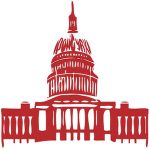NBER Report: More Than 20,000 Dead in Nursing Homes
As a paper completed this year draws a direct link between profit-driven healthcare operations and a rise in mortality, Congress has turned its attention to the role of private equity (PE) in hospital operations.
A new study by the National Bureau of Economic Research overcame many limitations of prior studies of PE in healthcare, to shed light on the effects of PE on nursing home care. Utilizing Medicare data representing thousands of nursing homes and millions of Medicare patients, the recent NBER study found that nursing home takeover by PE-backed groups was responsible for the loss of 20,148 lives over a 12-year period. In these facilities, PE takeover of nursing homes was associated with a 10% increased likelihood of death during, and for 90 days after, a patient's nursing home stay.
In addition, the study found that PE involvement was associated with decreased nursing availability and overall staffing, and was, on average, 11% costlier. These facilities were also 50% more likely to give antipsychotics to their patients, drawing concerns that chemical restraints were being used in lieu of adequate nursing coverage. The study indicates a shift that funnels operating costs away from patient care in PE-owned facilities, even as profits were recorded.
Implications for EM
No studies have yet shown if the conclusions drawn from the nursing home data can be applied to patient morbidity and mortality in the emergency department (ED). However, the similarities between operations in PE-owned nursing homes and in PE-owned EDs with regard to cost-cutting, billing, and profit are worth noting - particularly if comparable studies are undertaken to examine PE's effects on emergency care.
Experiences involving PE-owned healthcare systems have already made national headlines, such as the story of Dr. Ming Lin, who is currently suing Blackstone's TeamHealth after he publicly decried his hospital’s handling of PPE early in the COVID pandemic and subsequently lost his full-time assignment. PE ownership was also implicated in the abrupt closure of Philadelphia's Hahnemann hospital, where hundreds of residents (across multiple specialties) were uprooted mid-training when the new private equity owner "liquidated" their residency slots, auctioning them to other hospital systems to generate profits.
As we draw conclusions from this sentinel study, we must examine the effects of PE within EDs and the broader healthcare system as a whole.
Abstract
Article: Gupta A, Howell ST, Yannelis C, Gupta A. Does Private Equity Investment in Healthcare Benefit Patients? Evidence from Nursing Homes. Working Paper 28474. National Bureau of Economic Research. February 2021.
The past two decades have seen a rapid increase in private equity (PE) investment in healthcare, a sector in which intensive government subsidy and market frictions could lead high-powered, for-profit incentives to be misaligned with the social goal of affordable, quality care. This paper studies the effects of PE ownership on patient welfare at nursing homes. With administrative patient-level data, we use a within-facility differences-in-differences design to address non-random targeting of facilities.
We use an instrumental variables strategy to control for the selection of patients into nursing homes. Our estimates show that PE ownership increases the short-term mortality of Medicare patients by 10%, implying 20,150 lives lost due to PE ownership over the 12-year sample period. This is accompanied by declines in other measures of patient well-being, such as lower mobility, while taxpayer spending per patient episode increases by 11%.
We observe operational changes that help to explain these effects, including declines in nursing staff and compliance with standards.
Finally, we document a systematic shift in operating costs post-acquisition toward non-patient care items such as monitoring fees, interest, and lease payments.
EMRA + PolicyRx Health Policy Journal Club: A collaboration between Policy Prescriptions and EMRA
 As emergency physicians, we care for all members of society, and as such have a unique vantage point on the state of health care. What we find frustrating in our EDs - such as inadequate social services, the dearth of primary care providers, and the lack of mental health services - are universal problems. As EM residents and fellows, we learn the management of myocardial infarctions and traumas, and how to intubate, but we are not taught how health policy affects all aspects of our experience in the ED. Furthermore, given our unique position in the health care system, we have an incredible opportunity to advocate for our patients, for society, and for physicians. Yet, with so many competing interests vying for our conference education time, advocacy is often not included in the curricula. This is the gap this initiative aims to fill. Each month, you will see a review of a new health policy article and how it is applicable to emergency physicians.
As emergency physicians, we care for all members of society, and as such have a unique vantage point on the state of health care. What we find frustrating in our EDs - such as inadequate social services, the dearth of primary care providers, and the lack of mental health services - are universal problems. As EM residents and fellows, we learn the management of myocardial infarctions and traumas, and how to intubate, but we are not taught how health policy affects all aspects of our experience in the ED. Furthermore, given our unique position in the health care system, we have an incredible opportunity to advocate for our patients, for society, and for physicians. Yet, with so many competing interests vying for our conference education time, advocacy is often not included in the curricula. This is the gap this initiative aims to fill. Each month, you will see a review of a new health policy article and how it is applicable to emergency physicians.



